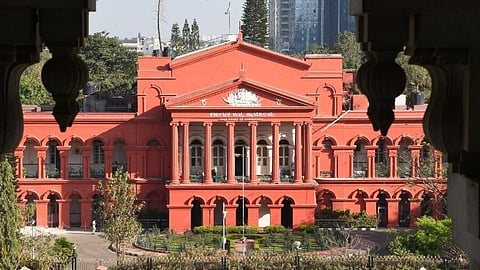

BENGALURU: The Karnataka High Court directed the Principal Secretary of the Revenue Department to issue necessary instructions to all revenue officers to mandatorily reflect "not to alienate" injunction orders granted by civil courts in the "other rights" column of the revenue records to prevent unnecessary litigation and safeguard the integrity of judicial orders.
Allowing the petition filed by Suvarna from Hennagara village in Anekal taluk questioning the endorsement dated December 31, 2024, issued by the Special Tahsildar of Anekal taluk in respect of the injunction granted by a civil court in a partition suit, Justice Sachin Shankar Magadum questioned the conduct of the Special Tahsildar in refusing to make entries in revenue record on untenable reason that state was not a party in the litigation.
Quashing the impugned endorsement, the court directed the tahsildar and the Assistant Commissioner of Bengaluru South Sub Division to incorporate forthwith the injunction granted by the civil court in the original suit concerning the disputed property in the “other rights’ column of the revenue records.
“Revenue authorities, as custodians of land records, are duty-bound to comply with orders of the civil court and ensure that rights declared by judicial forums are given full effect. Failure to do so would not only amount to willful disobedience of court orders but would also encourage illegal transactions in derogation of the rights of the litigating parties”, the court said.
In the suit filed by the petitioner for partition and consequential reliefs, the civil court, after considering the application under Order 39 of the Civil Procedure Code (CPC), granted an injunction restraining the defendants from alienating the suit property.
Despite the subsistence of this injunction, the Tahsildar, relying on a circular, issued an impugned endorsement stating that since the state government was not a party to the civil proceedings, he was not bound to reflect the injunction order in the "other rights" column of the revenue records.
Terming this approach of the revenue authorities as legally untenable and needs to be condemned in the strongest possible terms, the court said that the present case highlights a regrettable state of affairs where revenue authorities have failed to uphold the legal sanctity of an injunction order granted by a competent civil court in a partition suit.
Revenue officials refusing to enforce injunction orders because they are not parties to the suit defies logic and the fundamental principles of the judicial process.
Such act of revenue authorities not only undermines the authority of the civil courts but also pave the way for fraudulent transactions and multiplicity of litigations, which the injunction orders seek to prevent, the court observed.